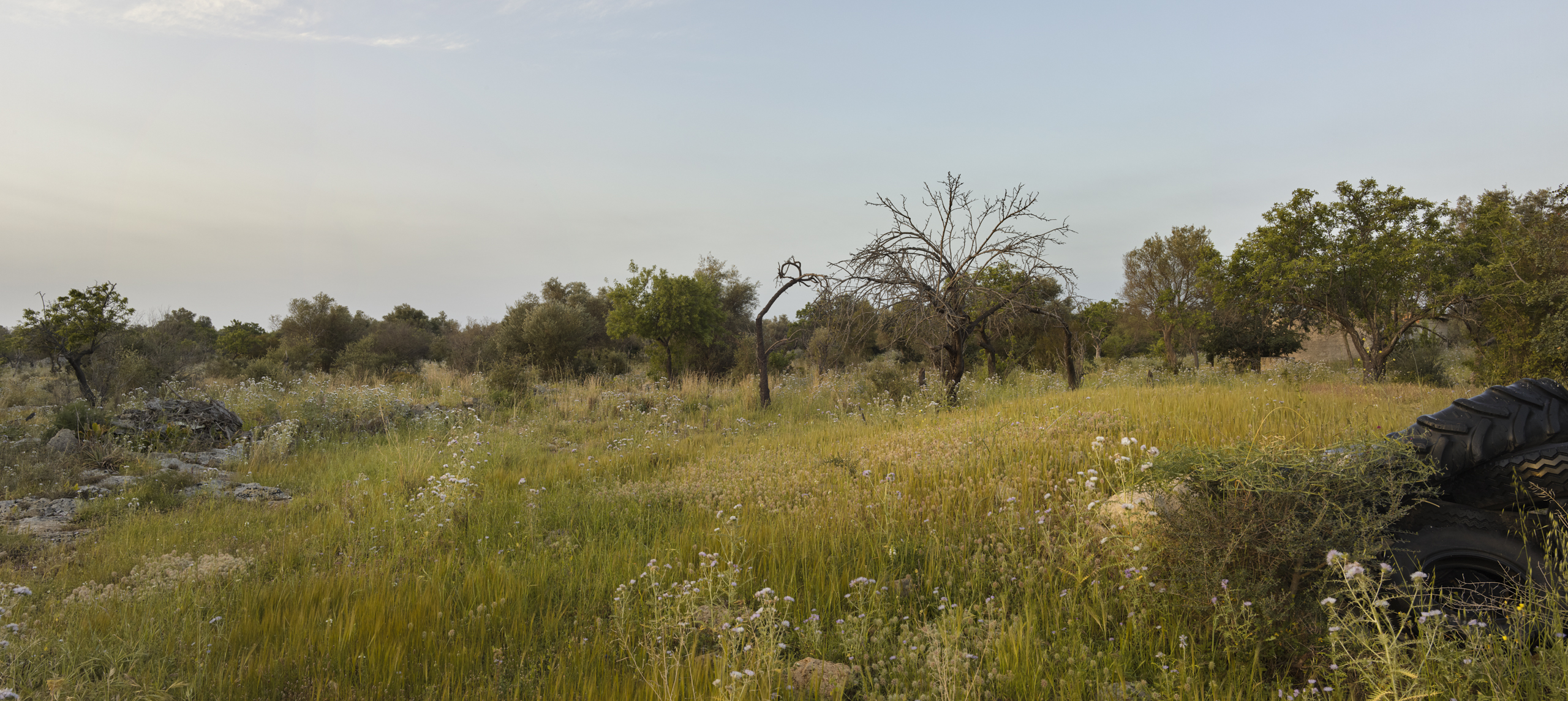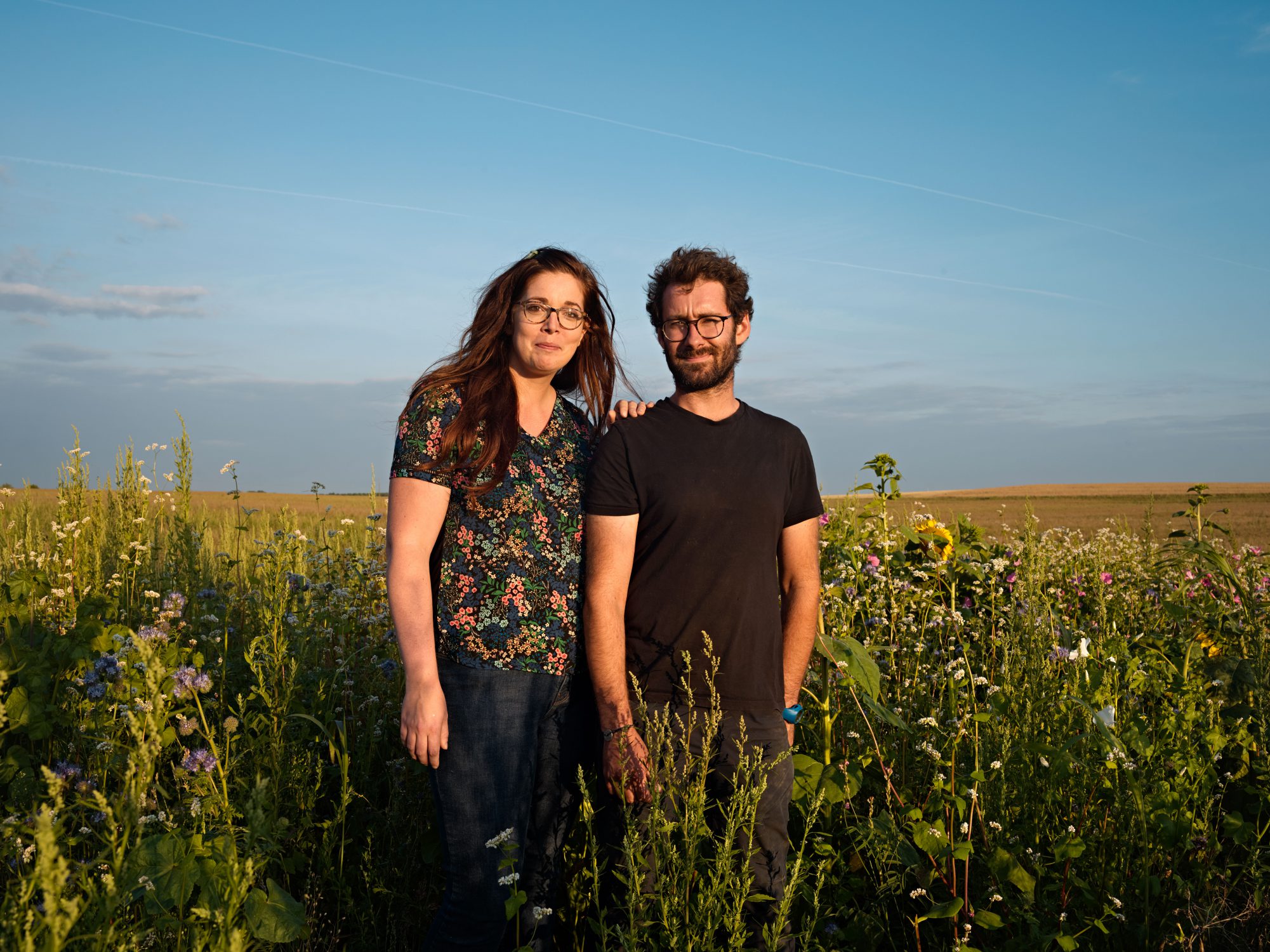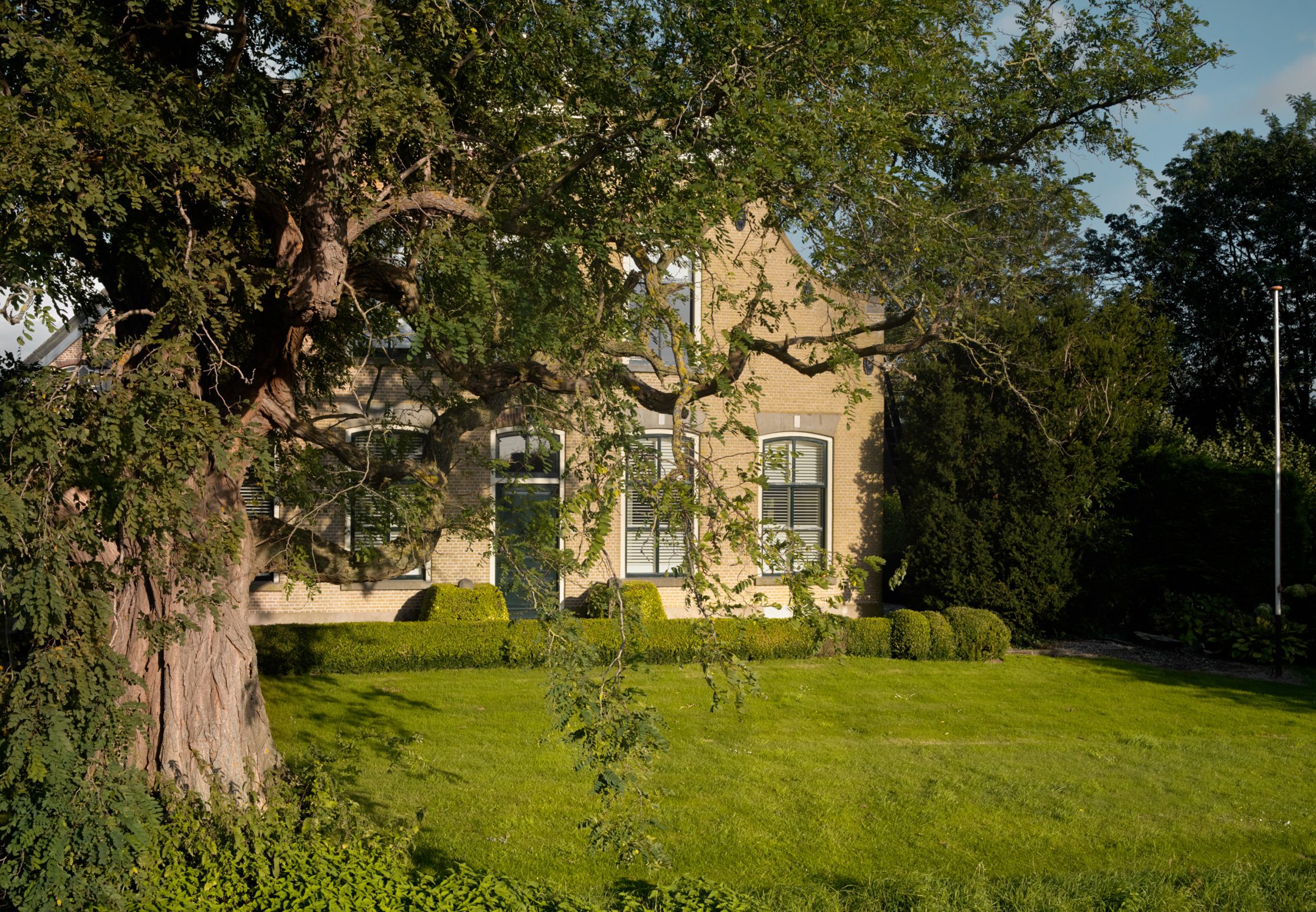
On a sunny autumn afternoon in September we drive up to the buildings of a farm called Oemsteen, run by the Klompe family. At first sight it’s a typical Dutch arable farm in the Hoeksche Waard. It’s large by Dutch standards, at 360 hectares, growing potatoes, red onions, shallots, grain, carrots, brown beans and soja beans (for the production of Tomasu soy sauce).

The farmyard is buzzing with activity, as the potato harvest is fully underway. At the conveyor belt where the potatoes are sorted stand three generations of the family: Jeroen Klompe, who runs the farm, his father who has retired but can’t resist helping out, and Jeroen’s son, who plans to take over the business along with his sister. While big tractors with tiltable trailers full of potatoes drive up to the sheds, we meet Mellany Klompe behind the farmhouse. On film she tells us how and why they switched from conventional to regenerative farming ten years ago.
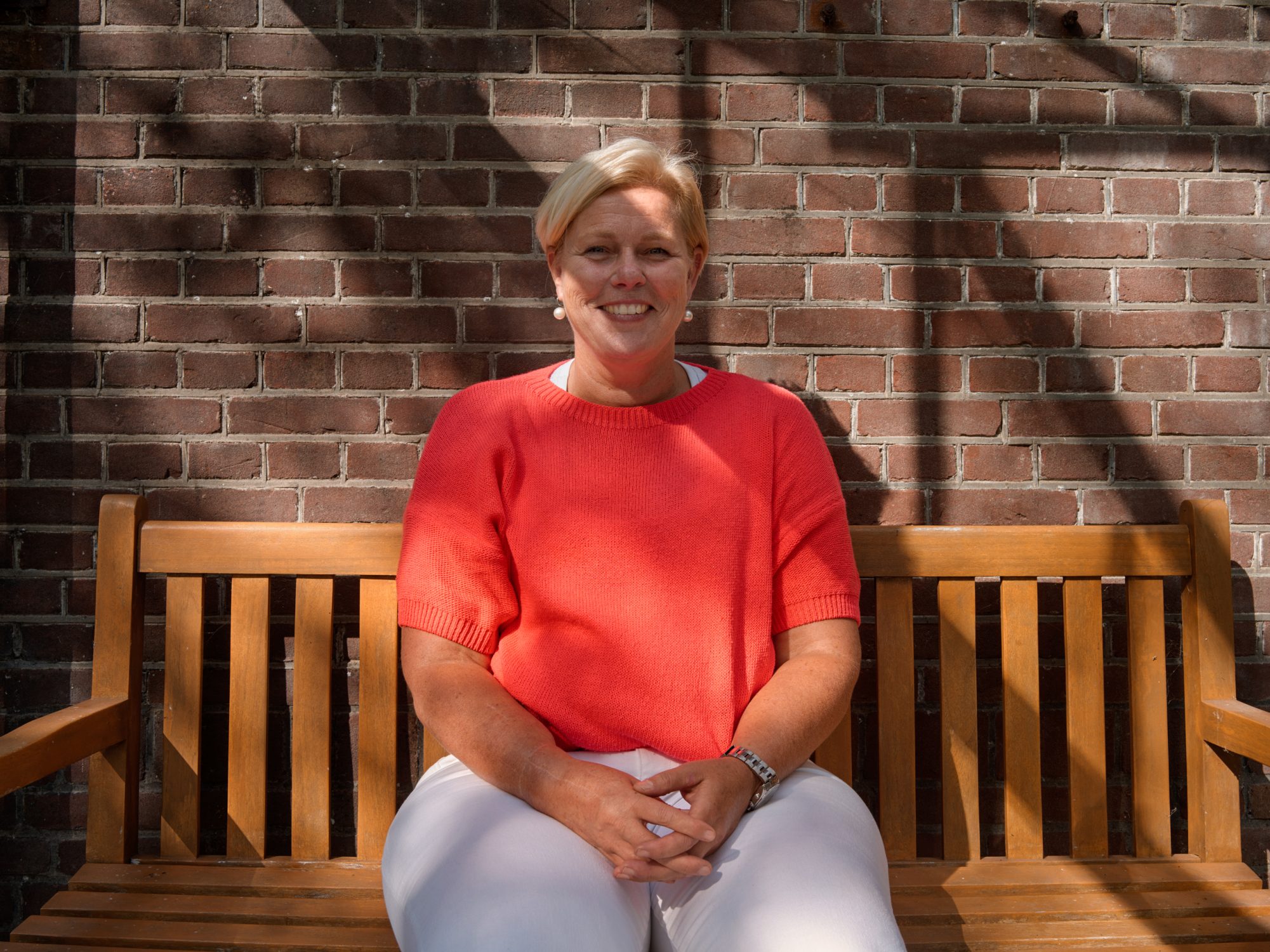
"For us, regenerative agriculture is a holistic approach."
Mellany Klompe
It needs to deliver
It’s a typically Dutch expression that is often heard throughout the sustainable economy and in the agricultural transition. Sustainable business is great but is it affordable? At the end of the day there’s a sum that must add up. The Klompe’s farm is no exception; in today’s sluggish economy there’s no room for just trying something and hoping it works. That’s why Jeroen and Mellany set up the “Soil Heroes Foundation”.
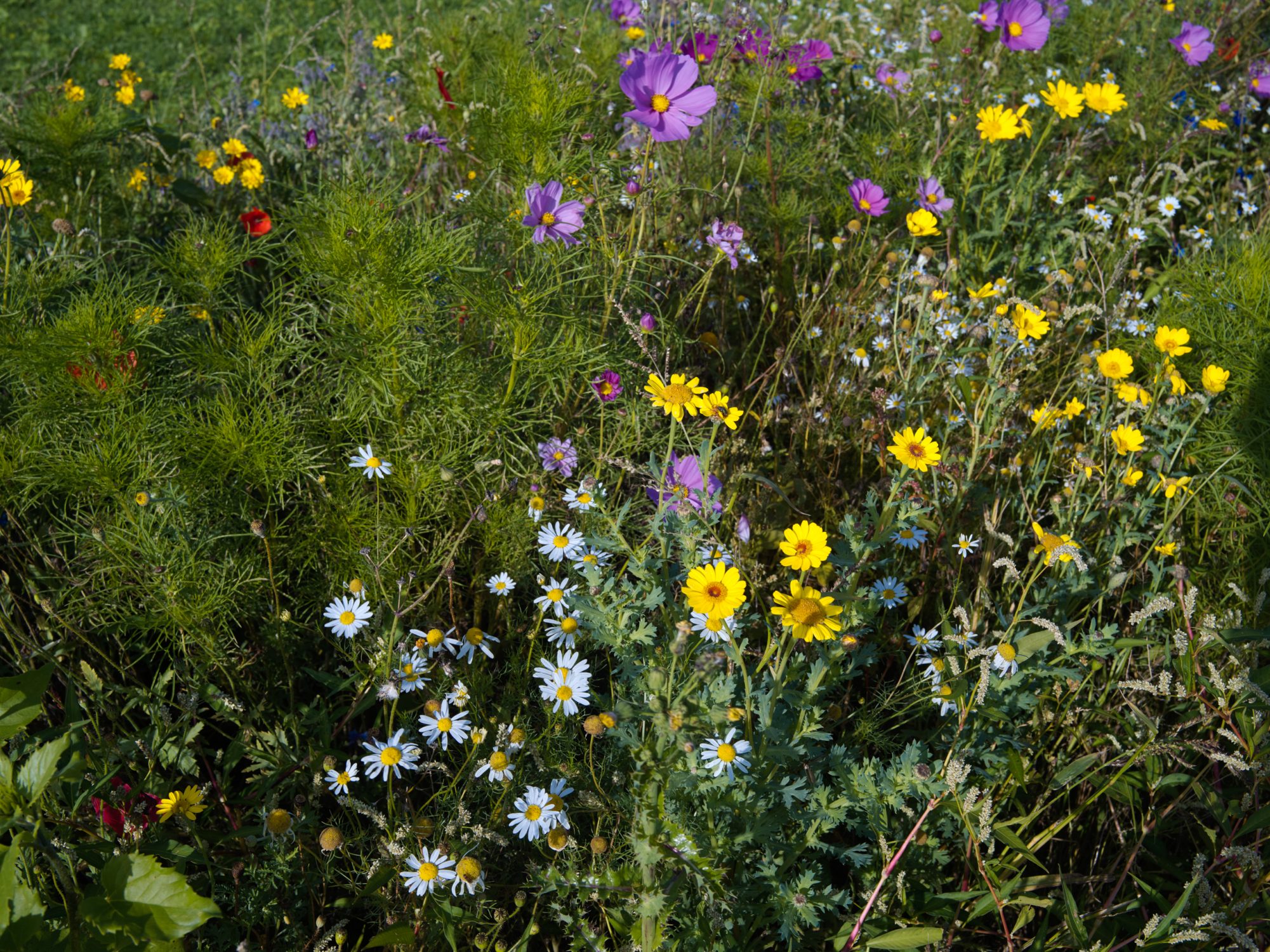
The Soil Heroes Foundation
The Soil Heroes Foundation’s purpose is to trial and innovate regenerative agricultural practices to accelerate the transition to regenerative agriculture, for the good of the climate, the environment, global citizens and the farming community. Jeroen and Mellany Klompe have been in the forefront of regenerative farming for more than ten years.
Mellany has a background in environmental science and previously worked for the Dutch waterboards, as well as various local government agencies. She is also on the board of the Collective Cooperative for Hoeksche Waard, a role in which she has been a driving force behind the creation of more than 800 km of field margins and biodiversity lanes on the island, to promote natural pest control, pollination and biodiversity.
In partnership with the Soil Heroes Foundation, the Klompe Farm carries out trials and then implements a wide range of experimental regenerative practices, including using biofertilizers and compost tea, lane cropping, biodiversity margins and strips, no till etc. In collaboration with universities and researchers, the trials generate data on the effects of regenerative practices. The results are complemented by the farm’s own farm logs – recording the adaptation of farming practices, the yields, the effects of the weather on the different plots and so on – all now supplemented by a purpose-built farm lab that has been run by the Foundation since 2022.

The bedrock of the planet’s biodiversity
Life on earth is entirely dependent on healthy, well-functioning soils. They are the very foundation of the ecosystems upon which we rely, and we count on them to produce healthy, nutritious food, to cycle our nutrients and to manage waterflows, sequester carbon and be the bedrock of the planet’s biodiversity. They have a crucial role to play in climate mitigation and resilience, and will determine our future food security.
We have selected two more stories that might inspire you.
